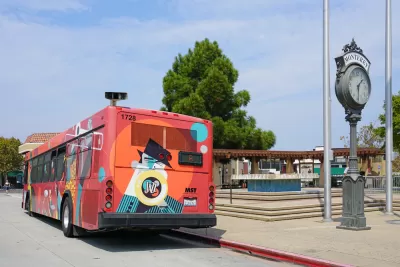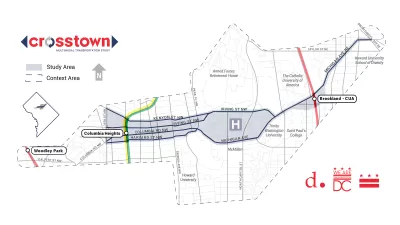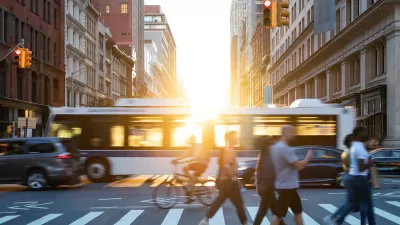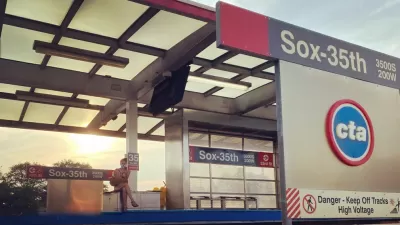A new study finds a connection between multimodality and income inequality in midsized cities.

"Looking at 148 midsize cities across the country, researchers found that income inequality declined when the percentage of commuters using some form of transportation other than single occupancy vehicles increased," reports Leah Binkowitz.
The study, by Chad Frederick and John Gilderbloom, both from the Centre for Sustainable neighborhoods at the University of Louisville, was published in October by the Local Environment journal.
The article by Binkowitz allows Frederick a chance to explain the importance of the findings, highlighted by the summary that a little bit of multi-modality goes a long way for income equality. "If you have 20 percent multimodality and go to 25 percent, you should see some very significant differences in all kinds of social outcomes," says Frederick in his own words, as quoted in the article. That reach means that transportation policy might have more impact than other policies governments could focus on to improve income equality. It also means that incremental changes can have outsized benefits.
FULL STORY: The Link Between Cars and Income Inequality

Planetizen Federal Action Tracker
A weekly monitor of how Trump’s orders and actions are impacting planners and planning in America.

San Francisco's School District Spent $105M To Build Affordable Housing for Teachers — And That's Just the Beginning
SFUSD joins a growing list of school districts using their land holdings to address housing affordability challenges faced by their own employees.

The Tiny, Adorable $7,000 Car Turning Japan Onto EVs
The single seat Mibot charges from a regular plug as quickly as an iPad, and is about half the price of an average EV.

As Trump Phases Out FEMA, Is It Time to Flee the Floodplains?
With less federal funding available for disaster relief efforts, the need to relocate at-risk communities is more urgent than ever.

With Protected Lanes, 460% More People Commute by Bike
For those needing more ammo, more data proving what we already knew is here.

In More Metros Than You’d Think, Suburbs are Now More Expensive Than the City
If you're moving to the burbs to save on square footage, data shows you should think again.
Urban Design for Planners 1: Software Tools
This six-course series explores essential urban design concepts using open source software and equips planners with the tools they need to participate fully in the urban design process.
Planning for Universal Design
Learn the tools for implementing Universal Design in planning regulations.
Smith Gee Studio
City of Charlotte
City of Camden Redevelopment Agency
City of Astoria
Transportation Research & Education Center (TREC) at Portland State University
US High Speed Rail Association
City of Camden Redevelopment Agency
Municipality of Princeton (NJ)





























